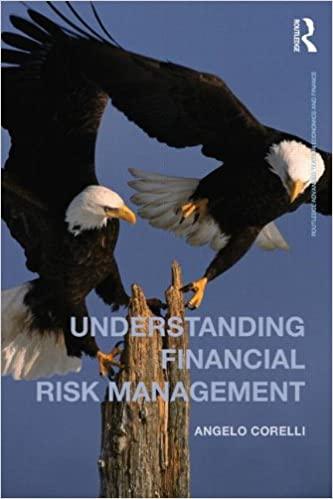
Question 4 (total of 12 marks): Amy has some Australian and Bangladeshi assets and liabilities as follows: AUD 900,000 Australian house asset. AUD 550,000 mortgage loan liability. AUD 25,000 owing on her credit card. BDT 35,000,000 Bangladeshi apartment asset that's owned outright with no mortgage. Note the apartment is denominated in Bangladeshi Taka (BDT), not Australian Dollars (AUD). The current exchange rate is 82 BDT per USD. The current exchange rate is 0.74 USD per AUD. . Provide answers as decimals rounded to 6 decimal places. For example, if your answer is 0.23456789, write it as 0.234568. Question 4a (2 marks): What is Amy's net wealth? State your answer in AUD. Don't include the AUD currency or $ sign, just write the number. Answers: Question 4b (2 marks): What is the weight of the asset class real estate in Amy's net wealth? Answers: Questic (2 marks): weight of the asset class debt in Amy's net wealth? Remember that all things that have characteristics of debt should be included in the asset class debt. Answers: Question 4d (2 marks): What new BDT per AUD exchange rate would cause Amy's net wealth to be AUD800,000? Assume that the shares remain the same value in BDT. State your final answer in BDT per AUD. For example, if you thought the answer was 70 BDT per AUD, write 70, without the currency symbols. Give your answer as a decimal that's correct to 6 decimal places. So, for example if your answer is 70.23456789, write it as 70.234568. Answers: Question 4e (2 marks): The investor currently has her AUD 6,000 spare cash invested in 2% pa term deposits in an Australian bank in AUD. She notices that Bangladeshi banks pay 3% pa term deposit rates on BDT. Both Australian and Bangladeshi banks have floating exchange rates and no capital controls. She is considering converting her AUD6,000 to BDT now, investing in BDT term deposits, and then converting the BDT back to AUD in one year. Calculate the 1 year forward BDT per AUD cross rate assuming that the principal of cross-currency interest rate parity holds. State your final answer in BDT per AUD. For example, if you thought the answer was 60 BDT per AUD, write 60. Give your answer as a decimal that's correct to 6 decimal places. So, for example if your answer is 60.23456789, write it as 60.234568. Answers: Question 4f (2 marks): What's the NPV of converting the AUD6,000 into BDT, investing it at a Bangladeshi bank's term deposit rate and converting back to AUD in one year? Assume that cross currency interest rate parity holds. Only write numbers in the below cell. Answers: Question 4 (total of 12 marks): Amy has some Australian and Bangladeshi assets and liabilities as follows: AUD 900,000 Australian house asset. AUD 550,000 mortgage loan liability. AUD 25,000 owing on her credit card. BDT 35,000,000 Bangladeshi apartment asset that's owned outright with no mortgage. Note the apartment is denominated in Bangladeshi Taka (BDT), not Australian Dollars (AUD). The current exchange rate is 82 BDT per USD. The current exchange rate is 0.74 USD per AUD. . Provide answers as decimals rounded to 6 decimal places. For example, if your answer is 0.23456789, write it as 0.234568. Question 4a (2 marks): What is Amy's net wealth? State your answer in AUD. Don't include the AUD currency or $ sign, just write the number. Answers: Question 4b (2 marks): What is the weight of the asset class real estate in Amy's net wealth? Answers: Questic (2 marks): weight of the asset class debt in Amy's net wealth? Remember that all things that have characteristics of debt should be included in the asset class debt. Answers: Question 4d (2 marks): What new BDT per AUD exchange rate would cause Amy's net wealth to be AUD800,000? Assume that the shares remain the same value in BDT. State your final answer in BDT per AUD. For example, if you thought the answer was 70 BDT per AUD, write 70, without the currency symbols. Give your answer as a decimal that's correct to 6 decimal places. So, for example if your answer is 70.23456789, write it as 70.234568. Answers: Question 4e (2 marks): The investor currently has her AUD 6,000 spare cash invested in 2% pa term deposits in an Australian bank in AUD. She notices that Bangladeshi banks pay 3% pa term deposit rates on BDT. Both Australian and Bangladeshi banks have floating exchange rates and no capital controls. She is considering converting her AUD6,000 to BDT now, investing in BDT term deposits, and then converting the BDT back to AUD in one year. Calculate the 1 year forward BDT per AUD cross rate assuming that the principal of cross-currency interest rate parity holds. State your final answer in BDT per AUD. For example, if you thought the answer was 60 BDT per AUD, write 60. Give your answer as a decimal that's correct to 6 decimal places. So, for example if your answer is 60.23456789, write it as 60.234568. Answers: Question 4f (2 marks): What's the NPV of converting the AUD6,000 into BDT, investing it at a Bangladeshi bank's term deposit rate and converting back to AUD in one year? Assume that cross currency interest rate parity holds. Only write numbers in the below cell. Answers







